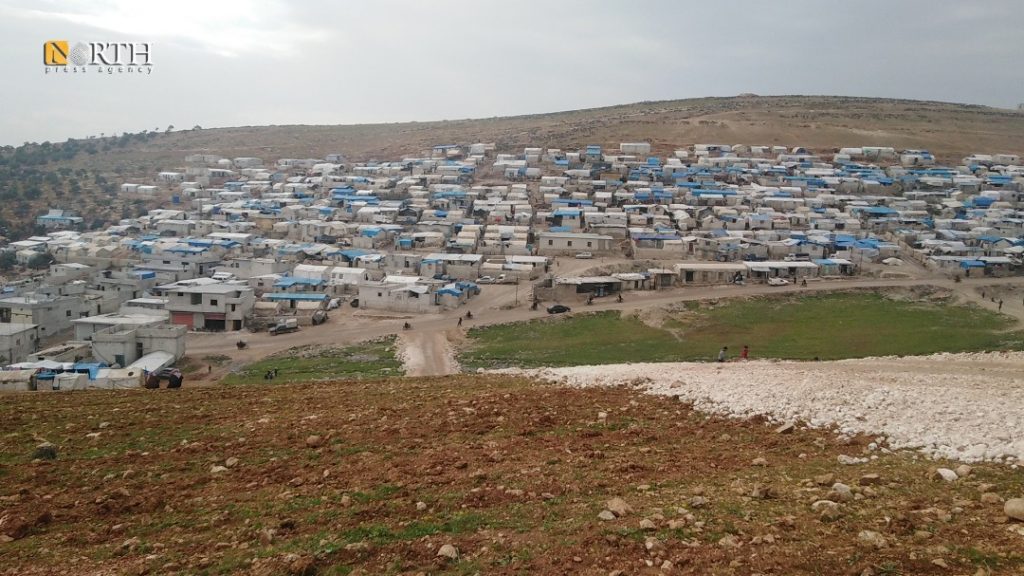
IDLIB, Syria (North Press) – Fathers and mothers in Idlib, northwestern Syria, deprive their girls from education and force them to early-marriage, while girls express their suffering due to these rotted social norms.
Displacement, poverty, lack of safety, the security chaos and social beliefs and traditions play a big role in the continuation of this habit within the Turkish-backed opposition-held areas, as many girls dropped out of school during years of war.
Inherited norms
Many residents and parents in Idlib believe that girls must stay at home and that they should learn how to manage domestic work before marriage.
Marwan Ghazal, 46, a resident of the town of Sarmada, believed that forcing his daughter to leave school after the sixth grade is not a strange matter, “she must help her mother with housework.”
“It is true that education is important in everyone’s life, but this does not apply to wartime,” he told North Press.
Ghazal fears lack of safety, and the possibility of the girls to be kidnapped or harassed, amid the security chaos in the region.
Two days ago, Bo Victor Nylund, UNICEF Representative in Syria, said that ten-year-war left nearly 90% of children in need of humanitarian assistance.
“Nearly 3.5 million Syrian children are out of school – including 40% of girls,” Nylund added.
“Ten years of humanitarian crisis and hostilities, in addition to COVID-19 outbreak have had a profound impact on the situation of children in Syria, as children and families in Syria continue to struggle,” he said in a press conference held in Geneva.
Male preference
Mariam al-Qaddour, 41, forced her two daughters, aged 12 and 13, to leave school.
“The certificates are not recognized. They are just ink on paper. Whatever educational certificates the girl obtains, she will marry and be responsible for a home and raising children, and her husband will be responsible for fulfilling her needs,” al-Qaddour added.
She attributed this to the difficult living situation and the inability of some families to secure the necessities of their children in terms of stationery, installments and clothes.
The 15-year-old Rahaf Barakat, from the city of Harem, said that her father “preferred to teach my brothers, while forcing me to stop going to school, despite my excellence in studying.”
She was forced to leave school after the seventh grade, “before that, my father used to force me to be absent when there was a need to work in the land or do housework.”
Camp’s life
Many families believe that the step to stop the girls going to school comes in preparation for their marriage through her mastery of housework, and they prefer to marry off their daughters at an early age, especially with displacement and poverty.
The 14-year-old Rima Ballan, a displaced child from the eastern countryside of Ma’arat al-Nu’man who resides in a camp in the town of Killis, married her cousin, despite her desire to return to school.
Rima accuses her mother of ignorance for not realizing that education helps a woman raise her children, get along with her husband and contribute to the service of her community.
However, her mother told North Press “In the camps, we lack decent living and there is no privacy, so the displaced families prefer to marry their girls in order to release them from the life of the tents and homelessness.”
